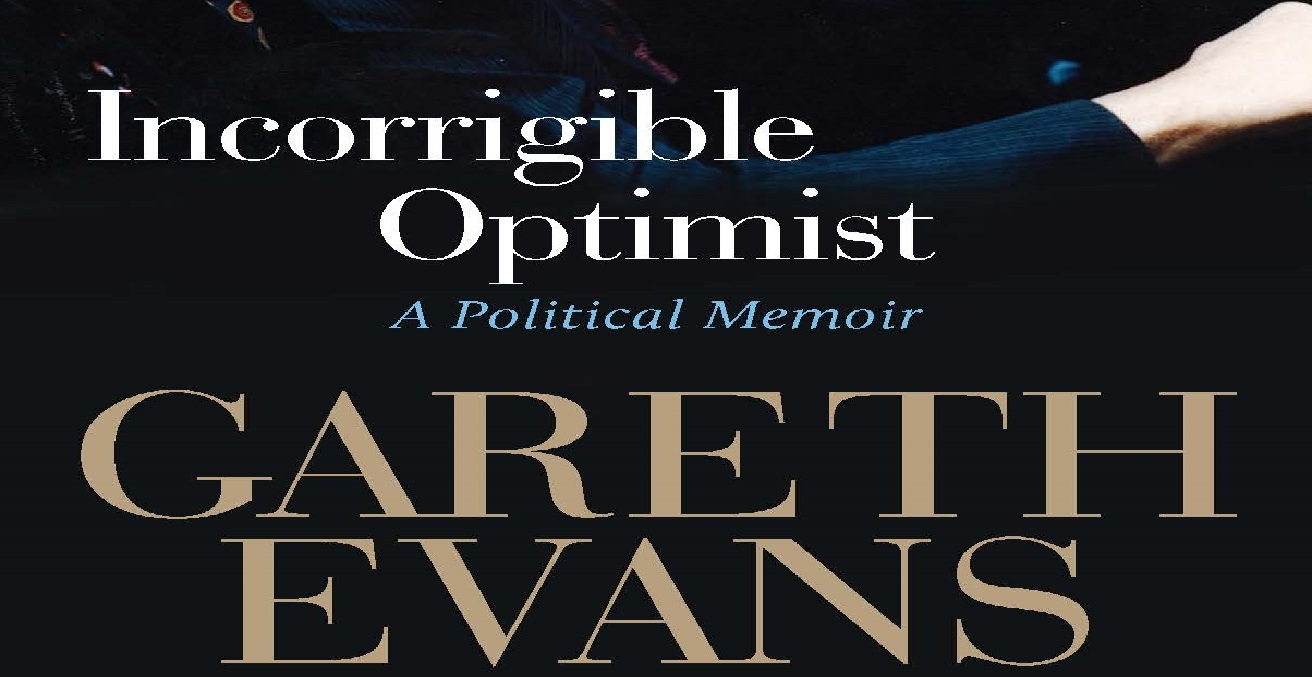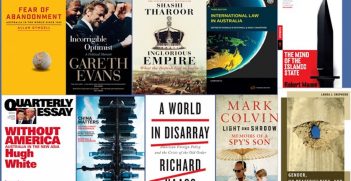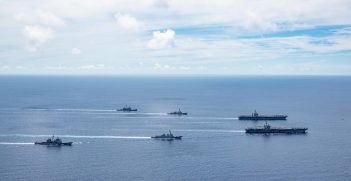Reading Room: Incorrigible Optimist

Gareth Evans’ memoir makes clear his vision of good international citizenship would have foreign ministers pursuing national self-interest within the ennobling vision of global moral purposes.
Evans has achieved much in the world of ideas and foreign policy and, if anything, has had an even greater impact after leaving public office. Under his leadership (2000–09), the International Crisis Group established itself as the world’s leading source of authoritative analyses of conflicts and prescriptions for their prevention and resolution. The job rescued Evans from the relevance deprivation syndrome of being in opposition after the exhilaration of being foreign minister.
Evans’ memoir ranges far and wide. The central theme is the enduring optimism of a remarkable internationalist against much evidence and experience to the contrary: a testament to the essential humanism of the author and his faith in the perfectability of fallible human beings and imperfect institutions, both nationally and in international society.
Evans cares passionately about peace, justice and human security, and is driven by a restless energy that is astonishingly creative when harnessed to a pet cause. No reader will fail to be enlightened about some of the most critical global challenges of the last two to three generations, be occasionally entertained, be widely educated on how the world of global politics works (or not); nor die wondering what Evans’s views are on the events, controversies and dramatis personae of the last four decades.
Evans sets himself three goals: to recall how he became involved with each of the 10 themes covered in the memoir; to describe how he pursued the subject, with successes and failures; and to draw lessons. In this selective memoir we are spared the tedium of a recitation of facts and blow-by-blow accounts. Instead, the big themes drive the narrative. Individual personalities and specific incidents are interwoven seamlessly with the narrative, leavening the analytical discussion with welcome episodes of human interest, including some that are the stuff of Australian folklore like the ‘Biggles’ moniker.
Readers will be just as fascinated by some of the ‘epiphany’ moments and early encounters, many of them when Evans was a young backpacker travelling through 20 countries in Asia, the Middle East, Africa and Europe in the 1960s, that proved deeply formative. There is also a very helpful annotated guide to readings for each chapter.
In 1968, Evans witnessed a big drunken GI beating up a half-naked Vietnamese woman outside his seedy hotel door and internalised “the sheer scale of the human suffering and misery” of any war. In Cambodia, he met a number of university students: not one seems to have survived the subsequent killing fields. The memory has given Evans the lifelong cause of preventing atrocities.
In 1964, as a 20-year-old on his first overseas trip, Evans confronted in Hiroshima the emotionally wrenching sight of a man or woman incinerated on 6 August 1945 whose shadow is indelibly etched into a granite that was crystallised in the intense heat of the atomic blast. The resolve to rid the world of nuclear weapons followed.
Evans’ steadfastness of principle in opposing the 2003 Iraq war cost him friendship with Tony Blair and explains his support for Australia to be prosecuted at the International Criminal Court for the treatment of asylum seekers in Nauru and Manus Island.
Another attraction is the tendency to self-deprecating humour. Hans Blix, chair of the Weapons of Mass Destruction Commission, “was a ferocious taskmaster, always knowing exactly what he wanted to say, very quick to produce his own drafts and very stubborn about ever giving up any of the brilliant language thus created: some were unkind enough to describe him in this respect as ‘the Gareth Evans’ of this commission”.
The chapter on diplomacy reviews “the most exciting and productive period of my professional life”. Evans’s intellect, interests and passions came together in this portfolio at a time when big structural forces opened up opportunities to give full play to his talents as the Cold War ended. The chapter is a useful primer on how to be an effective foreign minister by one whose family background was “a diplomat-free zone”: identify the core national foreign policy objectives, assess national capabilities to advance them, and choose the priorities against domestic and international real-world constraints.
He also summarises the key personal characteristics of a good foreign minister, acknowledging that he himself could be demanding, volatile and cantankerous, although some of the stories “have grown majestically in the telling”. In a matching vein, we are told what makes for a good policy NGO and the key ingredients of conflict prevention, resolution and peacebuilding.
In the changing global order and regional balances, it was also wise to have visibly prioritised Asia-Pacific geography, with an investment in personal relationships, over Euro-Atlantic history. We learn Evans’s Golden Rule on human rights promotion: do that which is productive, minimise the underproductive and eschew the counterproductive. Evans describes why the UN is “exhilarating at its best, yet morale-sapping at its worst” and explains why Malcolm Turnbull was wrong to refuse to nominate Kevin Rudd for secretary-general.
The importance of personal relations in foreign policy is brought out in Evans’ success with Indonesia’s Ali Alatas in providing much-needed ballast to the relationship between two countries that are as unalike as can be. Much of the dizzying additions to regional security and economic architecture produced by Evans’ “initiative-itis” came from feeling more comfortable with ASEAN colleagues than any other group—something I have observed first-hand.
Readers will differ in nuance, or more strongly, on some issues—Kosovo, Iraq, Iran, Sri Lanka, Libya, Ukraine, Crimea, the UN, China, freedom of navigation operations by Australia to challenge China’s maritime ambit claims, and, above all, East Timor—but they will still be forced to wrestle with the arguments of someone with an exceptionally sharp intellect, deep political experience and wide reading habits. We get at least an explanation of his government’s East Timor policy, with no less than Jose Ramos-Horta being invoked to lend weight to the case for the defence.
Regrets, he has a few, including toasting the Timor Gap Treaty with champagne while flying over the water, and being coolly objective instead of emotionally outraged at the resumption of French nuclear testing in 1995. And Evans concedes that Bob Hawke got both politics and policy right in banning any mining activity in Antarctica.
In sum, highly recommended: for an introduction to some of the most pressing policy challenges in Australia and the world, a review of some of the iconic events in modern Australian history, an understanding of the distance yet to cover in the long walk to freedom from fear and deprivation, and, above all, for connecting the personal to the political in the times, life and thoughts of a great Australian citizen of the world.
Gareth Evans, Incorrigible Optimist (Melbourne University Press, 2017)
Professor Ramesh Thakur, a former UN assistant secretary-general, is director of the Centre for Nuclear Non-Proliferation and Disarmament in the Crawford School of Public Policy at the Australian National University. The second edition of his ‘The United Nations, Peace and Security’ is to be published shortly by Cambridge University Press.
Professor the Honorable Gareth Evans AC QC FASSA FAIIA will be presenting his new book “Incorrigible Optimist” at an AIIA VIC event on 29 November.
This article is published under a Creative Commons Licence and may be republished with attribution.





